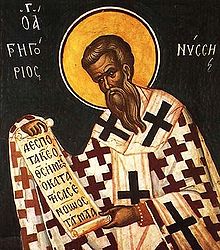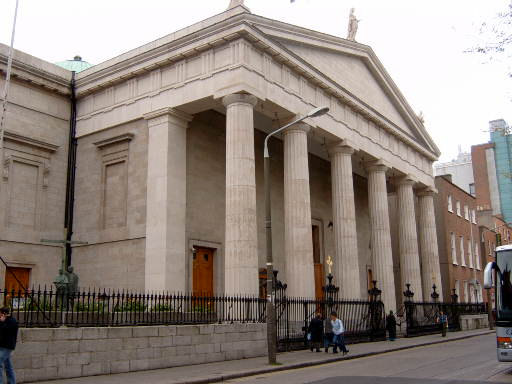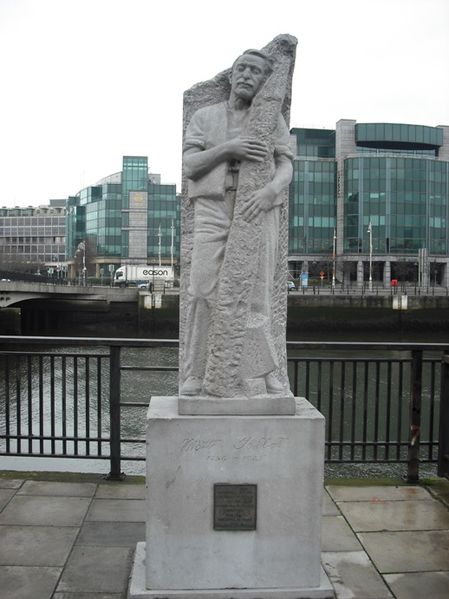The Tempation of Christ, Juan de Flandes [Web Gallery of Art]
Readings (New
American Bible: Philippines, USA)
Readings
(Jerusalem
Bible: Australia, England & Wales, India [optional], Ireland, New Zealand,
Pakistan, Scotland, South Africa)
Then Jesus was led up by the Spirit into the wilderness to be tempted by
the devil. He fasted for forty days and forty nights, and afterwards he
was famished. The tempter came and said to him, ‘If you are the Son of
God, command these stones to become loaves of bread.’ But he answered, ‘It
is written,
“One
does not live by bread alone,
but by every word that comes from the mouth of God.”’
but by every word that comes from the mouth of God.”’
Then the devil took him to the holy city and placed him on the pinnacle
of the temple, saying to him, ‘If you are the Son of God, throw yourself
down; for it is written,
“He
will command his angels concerning you”,
and “On their hands they will bear you up,
so that you will not dash your foot against a stone.”’
and “On their hands they will bear you up,
so that you will not dash your foot against a stone.”’
Jesus said to him, ‘Again it is written, “Do not put the Lord your God
to the test.”’
Again, the devil took him to a very high mountain and showed him all the
kingdoms of the world and their splendour; and he said to him, ‘All these
I will give you, if you will fall down and worship me.’ Jesus said to him,
‘Away with you, Satan! for it is written,
“Worship
the Lord your God,
and serve only him.”’
and serve only him.”’
Then the devil left him, and suddenly angels came and waited on him.
Matt Talbot statue, Dublin [Wikipedia]
I remember vividly a homily given on the First Sunday in Lent in St Columban's College, Dalgan Park, the Columban seminary in Ireland where I studied from 1961 to 1968, by the late Fr Edward McCormack, who taught us Latin. We all recognised Father Ted, as we called him, as a saintly man. It was clear from his preaching that he was experiencing something of the horror of the very idea of the Devil tempting Jesus, God who became man. It was as if the very soul of Father Ted was shuddering.
Matt Talbot was a Dubliner who had become an alcoholic by the age of 13 or 14 and spent the next fourteen years as a drunkard. He went to the extreme once of stealing a fiddle (violin) from a beggar and pawned it to get money for drink. It was his only living, Matt tells us in the video, and I think that was the worst thing I ever did in my life. Matt made many efforts later to trace the beggar but never succeeded.
Yet during his fourteen years of drinking Matt hardly ever missed Sunday Mass, though he didn't receive Holy Communion, and always said a Hail Mary before sleeping. I think that's what saved me in the long run, he tells us.
At the beginning of the second video Matt, masterfully played by Irish actor Seamus Forde, goes through a soul-wrenching temptation right at Communion time, something that happens the same Sunday morning at Mass in three different churches, a temptation that drives him out of each, until he falls on his knees outside one of them and prays Jesus, mercy; Mary help, a prayer that most Dubliners would have been familiar with. Perhaps Jesus had called Matt to share in the experience of his three temptations in the desert.
Matt Talbot towards the end of his life [Wikipedia]
The second video shows Matt sending a donation to the Maynooth Mission to China, as the Columbans were first known in Ireland, some time in the mid-1920s. The note he enclosed is in the Columban archives in Ireland. [A Columban priest told me recently that the original is now in Rome, with a copy in Ireland.] The amount, one pound from himself and ten shillings (half of a pound) from his sister, was considerable for poor people.
Towards the end of the video Matt speaks of the things God had asked him to do. He put these thoughts in my mind when I was praying - and I knew they came from him. Only the priest in confession knew about these special things, small things God wanted me to do. They weren't for anybody else.
Among the special things, small things were the chains he wore on certain occasions. It was these very chains, found on his body when he died, that led to people asking questions about me . . . God must have wanted it that way . . . using me to say something to people today, now.
Lent is a gift that God gives the Church each year, a personal gift to each member of the Church, a time when he wants to put these thoughts in my mind when I am praying.
Matt Talbot was the farthest thing imaginable from the 'celebrities' of today during his life. In the more than 90 years since his death he has given hope to many, especially persons struggling with alcoholism and other addictions.
Will I allow God this Lent to put whatever thoughts he wants to in my mind by giving him time in prayer? Will I allow him, as Mary did when she said Here am I, the servant of the Lord; let it be with me according to your word, to use me to say something to people today, now?
Will I fall on my knees in moments of great temptation, as Matt did during the terrible struggle he had right at Communion time three times on the one Sunday morning, perhaps reflecting the three temptations of the Lord in today's gospel, and plead Jesus, mercy, Mary help?
They thought I was missing the good things in life. But God gave me the best part - and he never took it away.
They thought I was missing the good things in life. But God gave me the best part - and he never took it away.
St Francis Xavier Church, Gardiner St, Dublin [Wikipedia]
Dubliners refer to churches by their street names rather than by their patronal names. The church above, which Matt calls 'Gardiner Street church', is that of the Jesuits. Matt also refers a number of times to the 'chapel' in Seville Place, the Church of St Laurence O'Toole, once Archbishop of Dublin. This is another old Dublin usage, calling a church a 'chapel'. The accent and idioms of Matt in the two videos are pure Dublin.
When I was a child my mother, when 'going into town', ie into the city centre, would sometimes go through Granby Lane and we'd pray at the spot where Matt died. Everyone in Dublin then knew who Matt Talbot was. I'm not so sure about today.
You can discover more about this wonderful man at the Dublin Diocesan Matt Talbot website and by googling, especially on YouTube.
The Annunciation, El Greco [Web Gallery of Art]
Here am I, the servant of the Lord; let it be with me according to your word (Luke 1:38).









.jpg/544px-Christ_Church_Cathedral_(Dublin).jpg)




